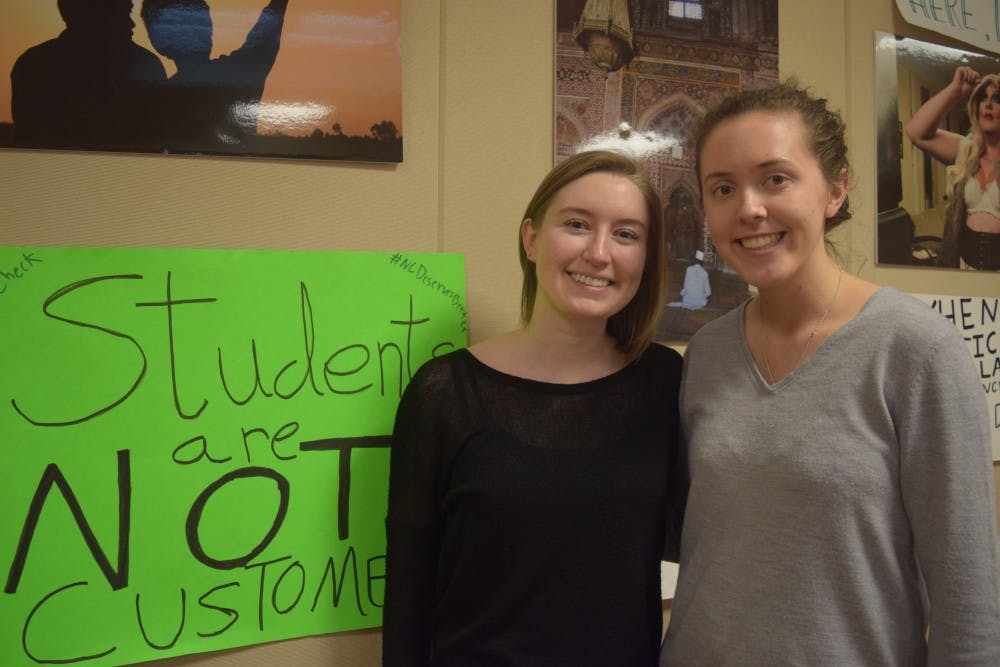Though the majority of the students on campus identify as female, students and faculty are seeking to close the gaps that still persist, especially in the University system.
57.6 percent of undergraduates, graduate and professional students are female, compared to the 42.4 percent of this population that is male. But out of the University faculty, 48 percent are female and 52 percent are male.
The faculty of the biology department, too, is disproportionately male compared to its population of female students. Department chairperson Victoria Bautch said the department has been working proactively to increase the representation of women. Even when female students are equally qualified, unconscious biases about the stereotypes of leaders often affect the ease with which a woman assumes a leadership role, Bautch said.
“If they’re not socialized or coached to that, it doesn’t happen,” she said.
Jessica Bolin and Alli Whitenack, the newest co-presidents of the Campus Y, praised female faculty members in leadership at the University level, but they are seeking justice in the other overlooked aspects of gender dynamics.
Both Bolin and Whitenack cited a need for increased diversity in leadership. They said they have been fortunate to gain leadership positions in communities of male allies or female students, but these organizations still lack representation of women of color.
“The more women and the more women of color that the University hires and promotes, the more empowered women and women of color on the campus will be,” Whitenack said.
In addition, Whitenack and Bolin agreed that some of the insidious ways that female students are marginalized is the University’s handling of sexual assault.
“While the University has a lot of great resources for this, from the Carolina Women’s Center to Title IX, I think UNC from an administrative standpoint could be doing a lot more to make women and other people from marginalized genders feel safer on campus from assault, specifically with holding fraternities accountable,” Bolin said.



